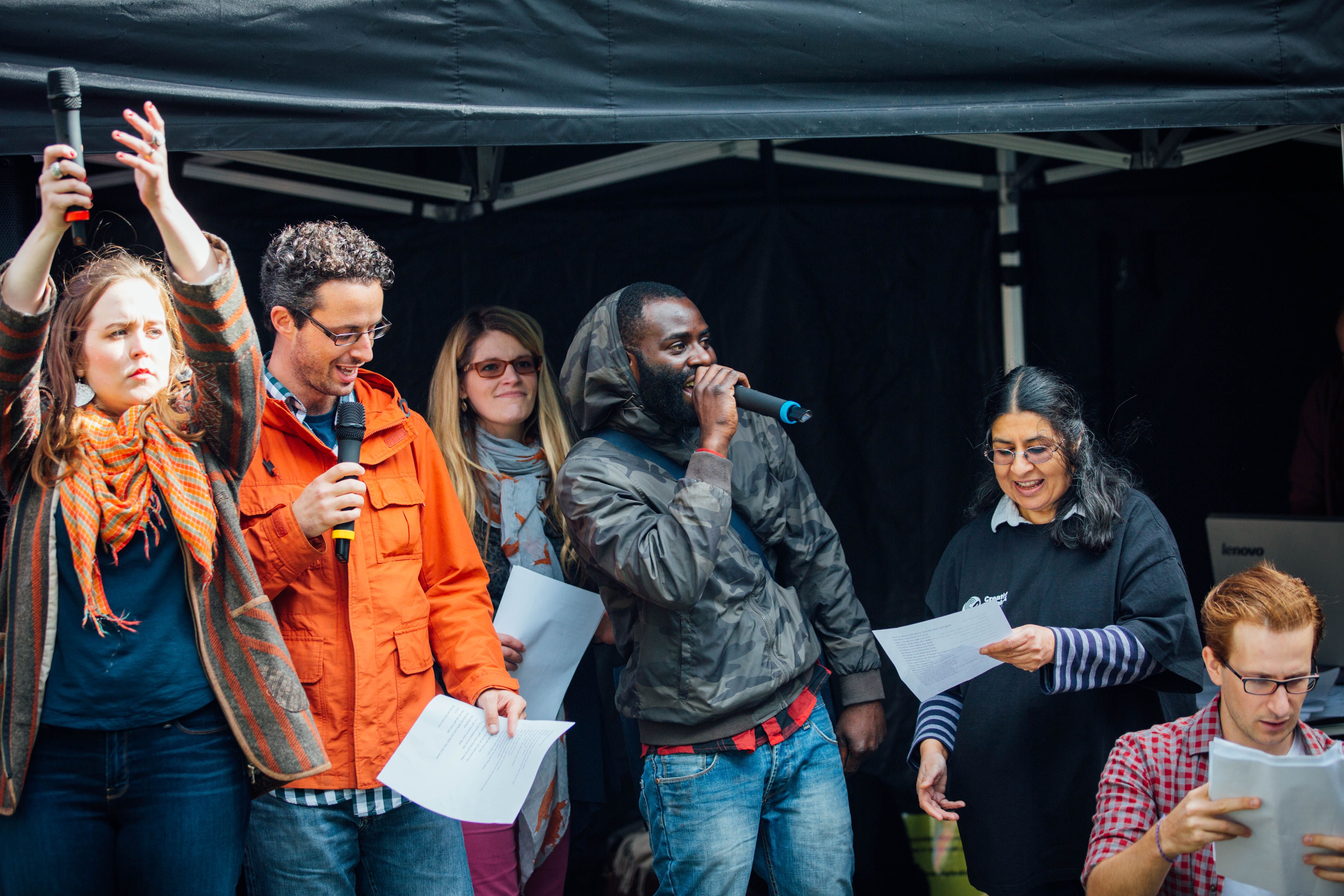To save the arts, we must look beyond West End theatres and London galleries
Rishi Sunak and Oliver Dowden are wrong to focus on the ‘crown jewels’ of the arts sector – local communities hold the key to recovery

While Rishi Sunak declares that “unviable” jobs will have to go and Oliver Dowden, secretary of state for culture, media and sport, focuses on the “crown jewels” of the arts sector, artists and arts makers across the UK have steadily got on with what we always do – working in the community and supporting education, as well as mental and physical health programmes. So much has changed in 2020, but what is not different is the passion for community-led engagement and for creative connection.
This is the grassroots side of the culture sector, working in and of community, by locals themselves. This is what Dowden misses when he talks about the arts in reference only to the West End theatres or London galleries. It is what Sunak misses when he names jobs as viable only in relation to traditional, industry-led forms. It is what the government misses when it fails to pay attention to the hyper-local: the street WhatsApp groups and Mutual Aid support groups that kept us going through the first lockdown and will do so again through the local lockdowns.
I know these are the people supporting their local communities because I’ve worked with them across the UK since 2013. When some of our leading arts organisations shifted their work online at the start of lockdown, Fun Palaces, which helps local people to co-create their own cultural and community events, and many like us at the grassroots end of the scale ensured a wide range of offline offers to support the millions in the UK with little or no internet access.
Dozens of local groups and individuals sent us activities they’d been doing to combat loneliness and anxiety in their neighbourhood and we shared their work as printed pages in mailouts to community centres and mental health groups. Our ambassadors in Northern Ireland, Scotland, Wales, Sheffield and Cornwall turned to the telephone to stay connected when they couldn’t meet people in person. In response to the crisis for freelancers, we have commissioned more freelancers this year than ever before.
The first weekend in October has been Fun Palaces’ weekend of action for the past seven years. We currently have over 250 communities and organisations on our map offering creative and skills-sharing activities online and in (socially-distanced) person this weekend. They range from venues as large as the National Maritime Museum to individuals in Orkney, Wrexham and Phnom Penh; there are puppetry workshops inspired by Black History Month at the Little Angel in Islington; and a canoe Fun Palace on a Sheffield canal matched by a currach Fun Palace on the River Lagan in Northern Ireland. While previous years’ Fun Palaces have seen thousands of participants, we are encouraging tiny in-person attendance; three participants would be a win.
Sadly, there are other cultural venues failing to give due credit to communities. For every Horsecross Arts in Perth giving over their online accounts to local people to share creative skills or SlungLow theatre in Leeds taking on food box and local support distribution alongside performance, there is a dark theatre. For every street-wide socially distanced gathering led by individuals, the participation and engagement staff that actually work with local community have been furloughed or laid off.
If ever there was a time to stop raising the art form higher than the communities that arts venues and organisations were created to serve, this is it. Now is the time to promote the participation staff, not get rid of them. If we cannot allow audiences inside, then buildings must look out to the community instead. While not every venue has the space to perform socially distanced work, every arts organisation, and especially the publicly funded ones, could offer up their online and offline resources, their remaining staff, to support local communities to create in the way they want to.
In making our argument for the viability of the arts, let’s ensure we can make this one – not arts for art’s sake, but arts for our sake. When we look back after the pandemic and consider what is worth not just saving, but supporting into the future, let’s look to the individuals and organisations who took their duty to community seriously, valuing connection over yet another famous name commission. Community survives – and thrives – only through connection; it may not be arts as usual, but it could be the arts we need right now.
Stella Duffy is an award-winning writer with 16 novels published in 15 languages, over 70 short stories and 14 plays. Her new novel Lullaby Beach will be published by Virago in February 2021. She is the co-founder and co-director of the Fun Palaces campaign, supporting people across the UK and beyond to create their own locally-led events using culture as a catalyst for community.
Join our commenting forum
Join thought-provoking conversations, follow other Independent readers and see their replies
Comments


Bookmark popover
Removed from bookmarks